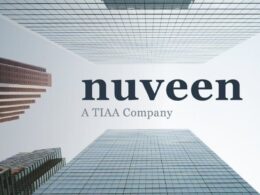Microsoft has become the latest member of the World Nuclear Association (WNA), underscoring how major technology companies are turning to nuclear energy to power expanding artificial intelligence (AI) and data centre operations.
The company will participate in this week’s World Nuclear Symposium in London, including an Energy Users Summit that will convene the nuclear sector, technology firms and energy-intensive industries to discuss partnerships, regulation and supply chain challenges.
Microsoft has already signed long-term nuclear energy agreements, including a 20-year deal with Constellation Energy to restart the Crane Clean Energy Centre in the US and an agreement with fusion start-up Helion. Collaboration with the Association is expected to centre on small modular reactors (SMRs), advanced nuclear technologies, streamlined licensing and resilient supply chains.
“Microsoft’s entry into World Nuclear Association’s membership reflects the strategic moment that our industry is working in as we work to meet our carbon-free energy goals,” said Dr Melissa Lott, who leads the company’s Energy Technology team.
World Nuclear Association director general Dr Sama Bilbao y León described Microsoft’s membership as “a game-changing moment” for the industry. “When one of the world’s most innovative technology companies recognises nuclear energy as essential to their carbon-negative future, it sends a powerful signal to markets, policymakers and industry leaders worldwide,” she said.
While nuclear power remains controversial due to the long-lived radioactive waste it generates, advocates argue it provides scalable, reliable, low-carbon electricity – qualities increasingly sought by the tech sector. Microsoft has pledged to become carbon-negative by 2030 but reported a near 30% rise in emissions since 2020, driven by the rapid build-out of data centres.
The surge in AI workloads has sharply increased electricity demand, with some training runs consuming as much power as 100 US homes use in a year. To counter its footprint, Microsoft has invested in carbon removal projects, including direct air capture, enhanced weathering and nature-based solutions, alongside a multimillion-dollar carbon credit deal with Occidental Petroleum.
















